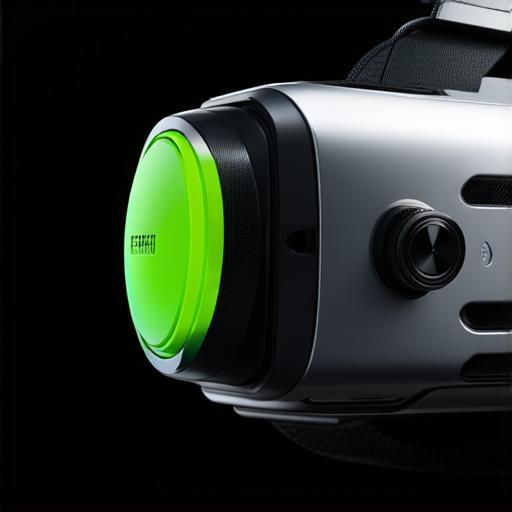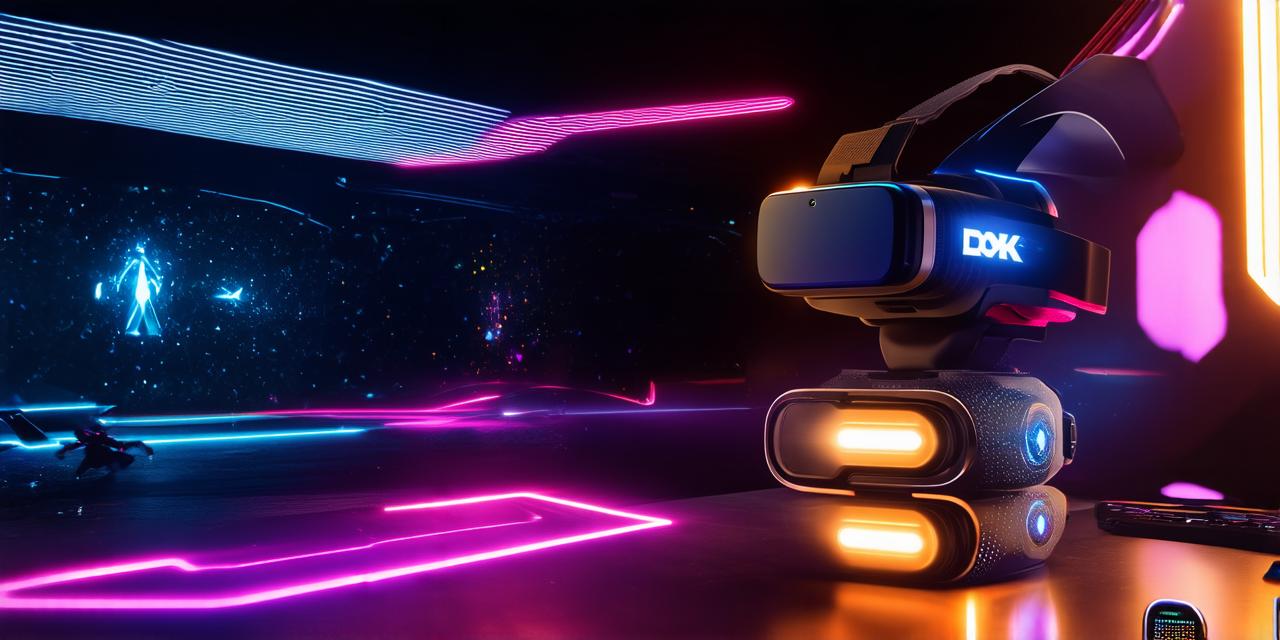As technology continues to advance, virtual reality is quickly gaining popularity in the gaming industry as well as other areas such as education, healthcare, and entertainment. With VR, users can immerse themselves in a simulated environment that allows them to interact with objects, people, and even entire worlds in ways never before possible.
What is Virtual Reality?
Virtual reality (VR) is a computer-generated simulation of a 3D environment that users can interact with using specialized devices such as headsets, gloves, or controllers. These devices track the movements of the user’s body and translate them into actions within the virtual world. In VR, the user perceives the environment as if they were physically present in it, creating a sense of immersion that is not possible with traditional gaming methods.
The history of virtual reality dates back to the 1960s when researchers first began experimenting with ways to create simulated environments for use in training pilots and astronauts. Today, VR technology has advanced significantly and is being used in a variety of applications such as:
- Gaming: VR gaming allows users to experience games in a fully immersive way that was not possible with traditional gaming methods.
- Education: VR can be used to create virtual field trips, allowing students to explore historical sites, scientific phenomena, and other subjects in a safe and controlled environment.
- Healthcare: VR can be used to simulate surgical procedures or other medical interventions, allowing doctors to practice and perfect their skills before performing them on real patients.
- Entertainment: VR experiences can be used to create interactive exhibits for museums or amusement parks, or even to allow users to explore virtual worlds such as those in the popular game Minecraft.

The Benefits of Virtual Reality
One of the main benefits of virtual reality is its ability to provide a fully immersive experience that can be difficult or impossible to achieve with traditional gaming methods. By placing the user directly in the virtual world, VR allows them to feel as if they are physically present in the environment, creating a sense of realism and engagement that is not possible with 2D games or other forms of media.
Another benefit of VR is its ability to provide users with a sense of agency and control over their actions within the virtual world. By allowing users to interact with objects and people in the virtual environment, VR can create a sense of ownership and investment in the experience that is not possible with passive forms of media such as movies or television shows.
In addition to its entertainment applications, VR also has potential applications in other areas such as education and healthcare. For example, VR simulations can be used to provide students with safe and controlled environments for learning new skills or exploring historical sites. In healthcare, VR can be used to simulate surgical procedures or other medical interventions, allowing doctors to practice and perfect their skills before performing them on real patients.
Virtual Reality in Gaming
Virtual reality has had a significant impact on the gaming industry, offering players an unprecedented level of immersion and engagement. With VR, players can experience games as if they were physically present in the game world, allowing them to interact with objects and people in ways that were not possible with traditional gaming methods.
One popular example of VR gaming is the Oculus Quest 2, a wireless headset that allows users to play games in a fully immersive way without the need for a separate computer or console. The Quest 2 has been praised for its ease of use and affordability, making it accessible to a wide range of players.
Virtual reality has also had an impact on the types of games being created. With VR, developers can create games that are specifically designed for immersive gameplay, allowing them to push the boundaries of what is possible with traditional gaming methods. For example, games such as “Beat Saber” and “Job Simulator” have been praised for their innovative use of VR technology to create engaging and immersive experiences.
Virtual Reality in Other Applications
In addition to its applications in gaming, virtual reality also has potential applications in other areas such as education, healthcare, and entertainment. For example, VR can be used to provide students with safe and controlled environments for learning new skills or exploring historical sites. In healthcare, VR can be used to simulate surgical procedures or other medical interventions, allowing doctors to practice and perfect their skills before performing them on real patients.
One example of the use of VR in education is the “Google Expeditions” program, which allows teachers to take virtual field trips with their students using a simple smartphone or tablet. With Google Expeditions, teachers can create customized itineraries that include visits to museums, historical sites, and other destinations around the world.
In healthcare, VR is being used to simulate surgical procedures and other medical interventions, allowing doctors to practice and perfect their skills before performing them on real patients. For example, the “MedRealities” platform allows doctors to practice surgical procedures in a virtual environment, providing them with valuable feedback and reducing the risk of errors during actual surgeries.
Virtual Reality vs Augmented Reality
While virtual reality and augmented reality are often used interchangeably, they are actually two distinct technologies. Virtual reality creates a fully immersive experience that places the user in a simulated environment, while augmented reality adds digital elements to the real world.
One example of augmented reality is the popular “Pokemon Go” game, which uses a smartphone camera to overlay digital creatures onto the real world. Augmented reality can also be used in education and healthcare applications, such as in medical training where digital annotations are added to real-world images to enhance understanding.
In conclusion, virtual reality is a rapidly evolving technology that has the potential to transform the way we interact with the world around us. From gaming to education and healthcare, virtual reality is providing users with new ways to experience and engage with the world in ways that were not possible before. As the technology continues to advance, we can expect to see even more innovative uses of virtual reality in the future.




